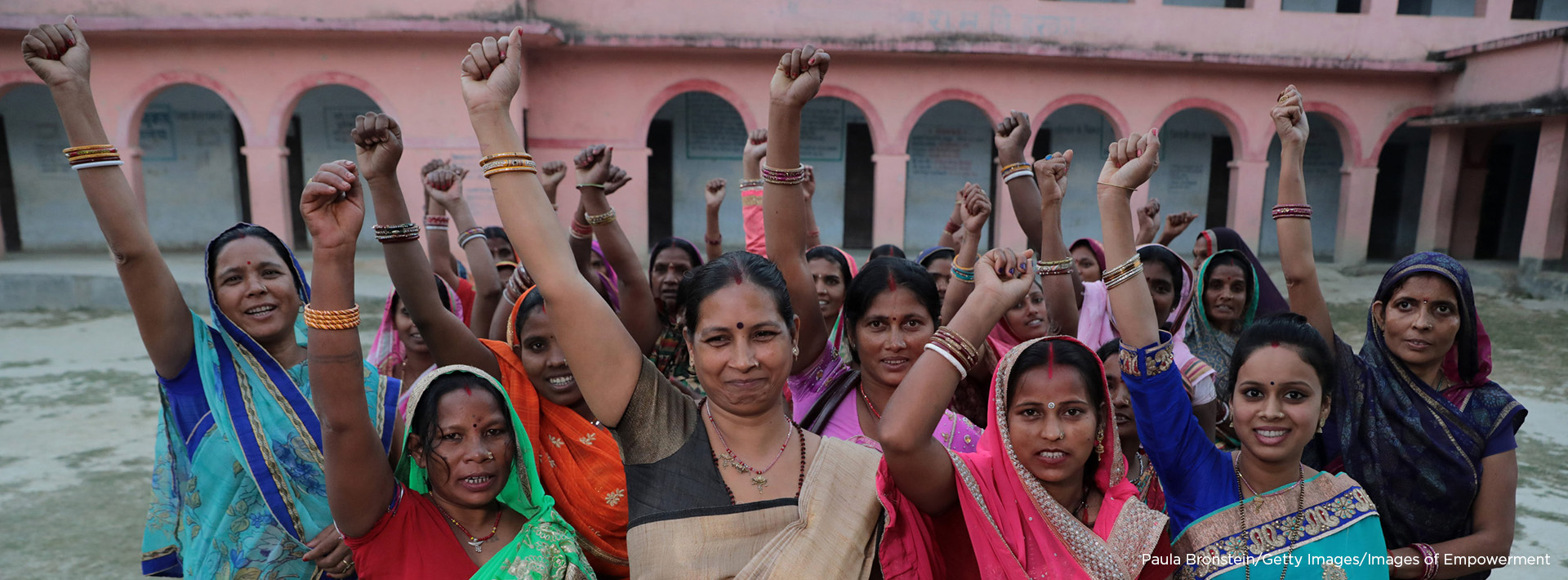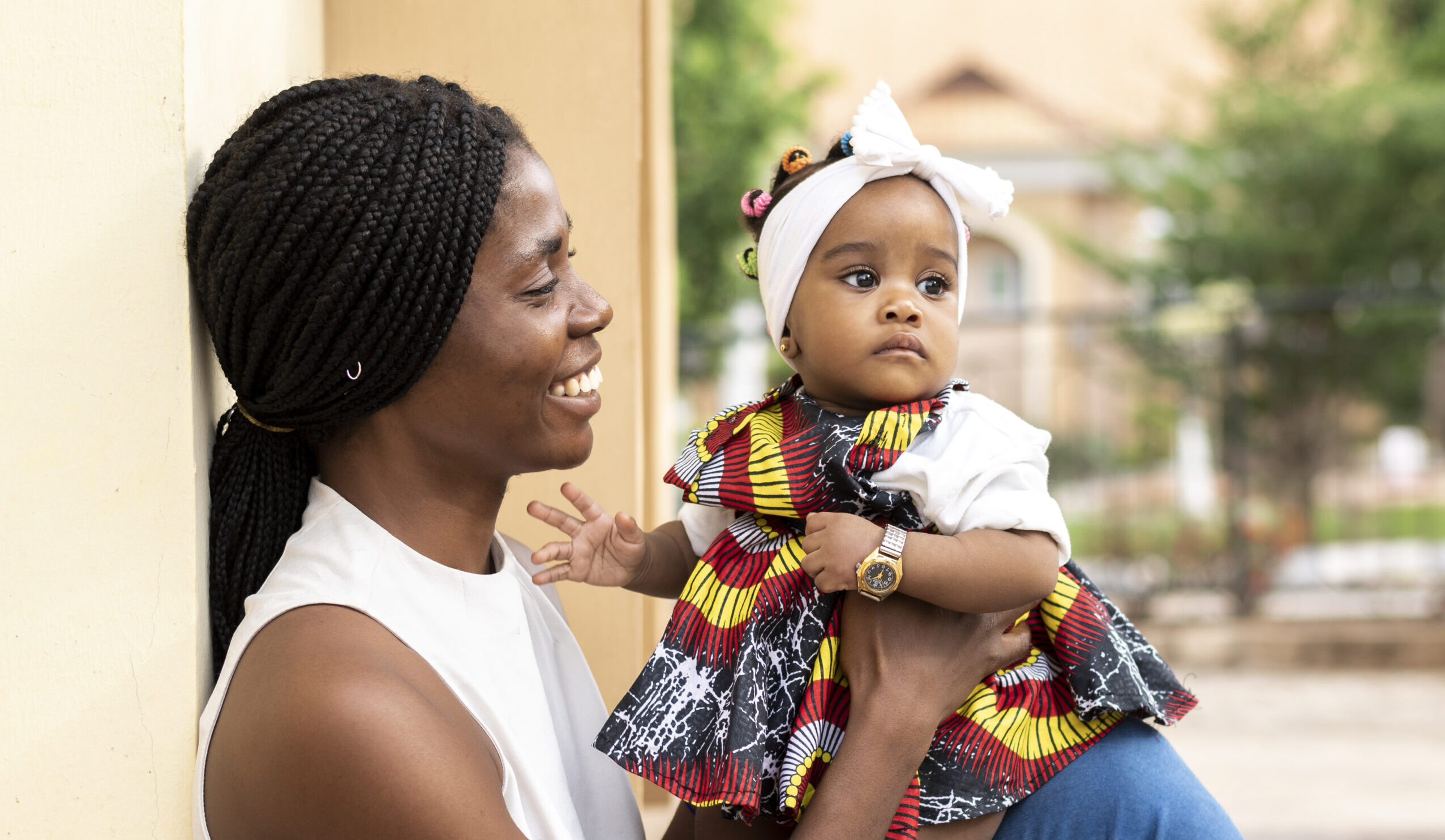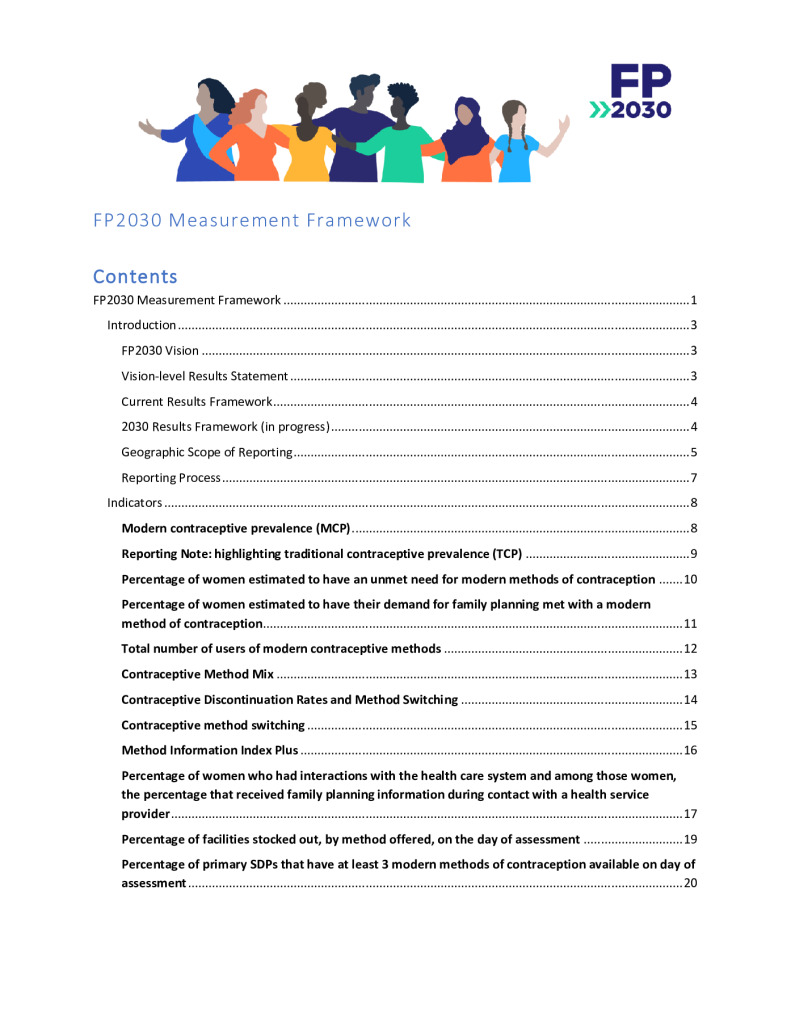Data Hub
We’re fundamentally data-driven and believe in the power of data to drive results and measure impact.

Overview of FP2030 Measurement Framework
Annual Measurement and Reporting Process
Areas of Future Work
Our Measurement Framework is based on the following, vision-based result:

Key Progress indicators include:
Informed Knowledge & Autonomy to Exercise Rights
Individuals have information about methods and side effects for a range of contraceptive choices and the ability to exercise their right to determine whether, when and how many children they want to have.
A Supportive & Responsive Health Care System
Responsive health systems equitably and sustainably provide high quality services and supplies for a range of contraceptive methods.
Effective, Results-Driven Support For Countries & Partners
Countries and partners have supportive policy, financing, and accountability environments that enable voluntary contraceptive use.
Key Components of the
FP2030 Measurement Framework
are:
Policies, Financing, & Programs
Beyond the above indicators, there is still a need for improved measurements in many aspects of family planning. As the FP2030 family planning partnership evolves, the measurement agenda will include efforts to develop indicators to measure social and behavioral change; identity indicators at the supportive environment level for policy, financing, and accountability; better indicators for understanding fertility intentions and the desire to use conception; and improved measurements of rights and empowerment principles for family planning.

The Performance Monitoring & Evidence Working Group is a group of global measurement experts.
The Performance Monitoring & Evidence (PME) Working Group developed the FP2030 Measurement Framework to track country progress from 2021 to 2030 and report on progress toward the overall FP2030 vision.

Our Global Impact
The FP2030 movement continues to grow in depth and scope, advancing reproductive health and choice worldwide.










